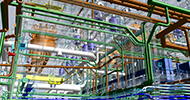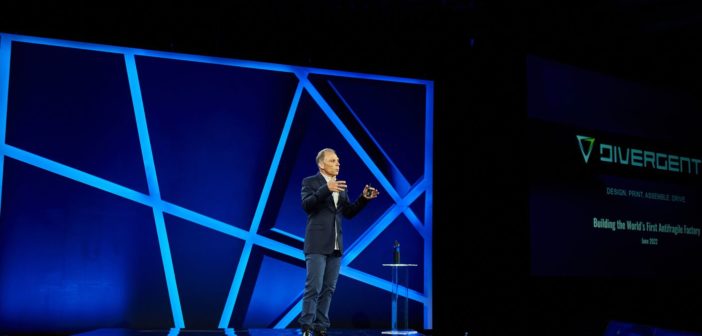Over the past couple of years, the word ‘unprecedented’ has probably been the most commonly-used adjective to describe the state of play around the world. It’s quite revealing, because it acknowledges that for much of that period, everyone was in new territory with little-to-no direct experience to form concrete plans.
One of the results of this overwhelming uncertainty was, understandably, a degree of panic and significant disruption to services and industries. As was stated during Paolo Guglielmini’s recent keynote at HxGN LIVE, “The day the lights went out on manufacturing: 3 Pivotal Lessons from manufacturing’s historic disruption”, the world experienced the most extensive factory closures since World War II and we are all still feeling the aftershocks. In his keynote, Paolo suggested that the pandemic felt like a giant social experiment.
Through this period of heartache, the sense of being unwittingly involved in an experiment was unnerving, but it also brought opportunities to learn valuable lessons – that things can be done differently. And more importantly, in many cases they should be done differently.
One of the most startling examples of this was the way in which the pharmaceutical industry – long renowned for the sedate pace of its product development – suddenly began operating with the agility of a start-up. Within a couple of months, Moderna had developed a new vaccine based on leading-edge technology and had progressed to trials. This was unheard of.
Transforming the automotive industry
The evidence from the world of pharma made it abundantly clear that, with enough conviction, we were not beholden to the old ways of doing things. Change was possible if we were only able to grasp the rare opportunity of a clean slate.
Paolo was joined on stage by Kevin Czinger (pictured above), CEO of Divergent, who supported this message and detailed how he has put the concept into action through his businesses.
While the clean air of the first lockdowns accelerated intense interest in electric vehicles, people buying and driving EVs is simply not enough. During his career, Kevin realised that the ‘long tailpipe’ is a real concern. If the carbon produced during the manufacture of an EV is more than its equivalent ICE version, we have an greater problem than we first thought. Kevin and his team focused on the whole lifecycle of their product through digital manufacturing because our entire built environment has been structured around the motor vehicle. Redefining how they are made and function and reducing their impact on the environment has the potential for enormous benefits for the planet.
Divergent took an ‘invent everything’ approach, providing the benefits of that clean slate to automotive manufacturing. Real change in manufacturing requires completely new systems and processes and that is Divergent’s attitude across materials, software and automation – everything had to be new and digitalised.
Integrating generative design and additive manufacturing into the production process meant significant mass reduction, but required completely new printing technology to deliver the necessary speed (15-30x the standard printing rate). This again illustrates the power of ‘if it doesn’t exist, invent it’.
The dawn of a new platform
Our CP & TO, Parth Joshi, took the stage to showcase how Hexagon products help people solve more complex problems and innovate faster. These products need to harness automation and connectivity in order to meet the demands of the future while also manufacturing better products faster and in more sustainable ways.
This led to an incredibly exciting new launch: Nexus.
Nexus is an open platform that enhances smart manufacturing collaboration by connecting people, technologies and data, accelerating innovation and time-to-market. See this incredible technology in action in this introductory video.
Parth revealed that Nexus will empower cross-functional teams with freedom to innovate by harnessing advanced visualisations, connecting suppliers and partners with a streamlined and interactive experience. Nexus has the power to transform the future of manufacturing and we will bring you more information on this technology very soon…
Nexus has been developed in close collaboration with Microsoft, utilising the Microsoft 365 platform. Aleš Holeček, VP Office, Microsoft, joined Parth on stage to discuss the enormous potential of Nexus and the importance of Microsoft’s Fluid Framework to enable real-time collaboration and a people-centric experience.
Conclusion
This keynote provided a real statement of intent from Hexagon, highlighting not only the urgent need for change but also our commitment to transforming the future of manufacturing through next-generation digital technology. Watch the full keynote here and catch up with other presentations you may have missed during HxGN LIVE with our on-demand content as it becomes available:















